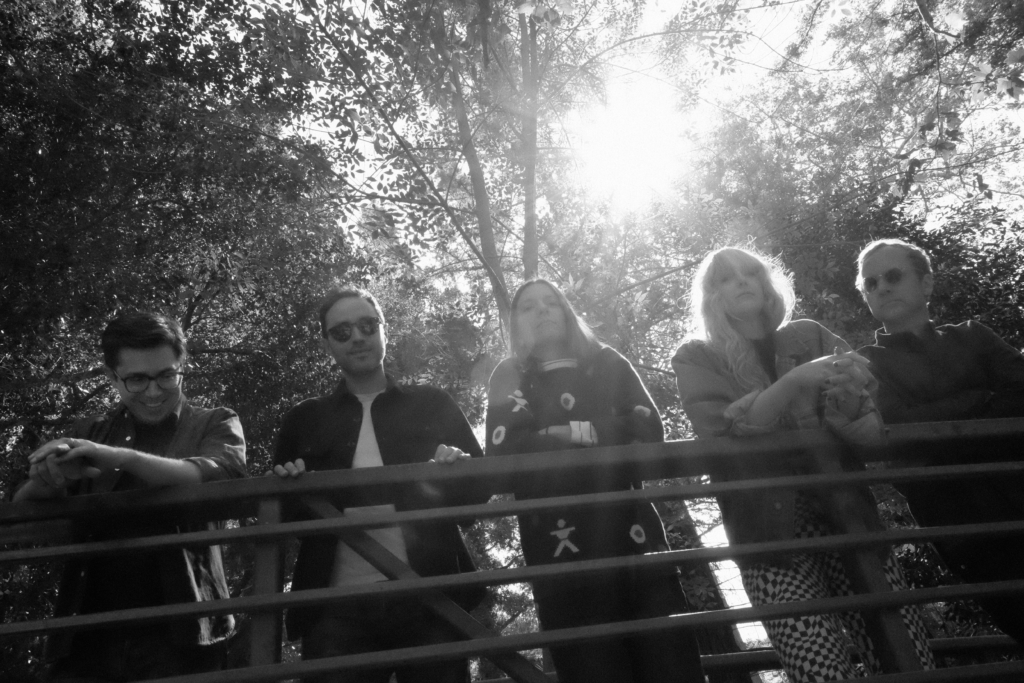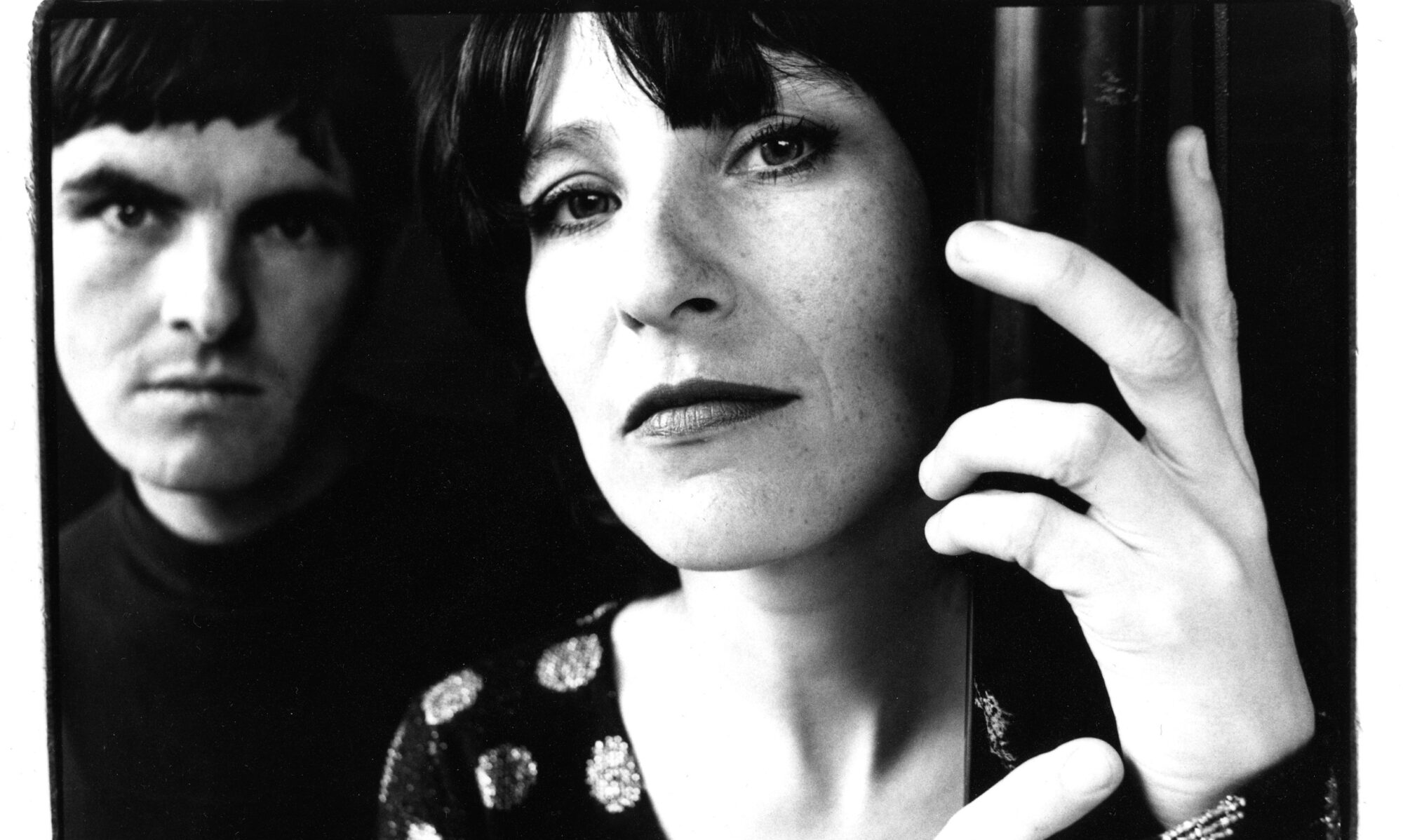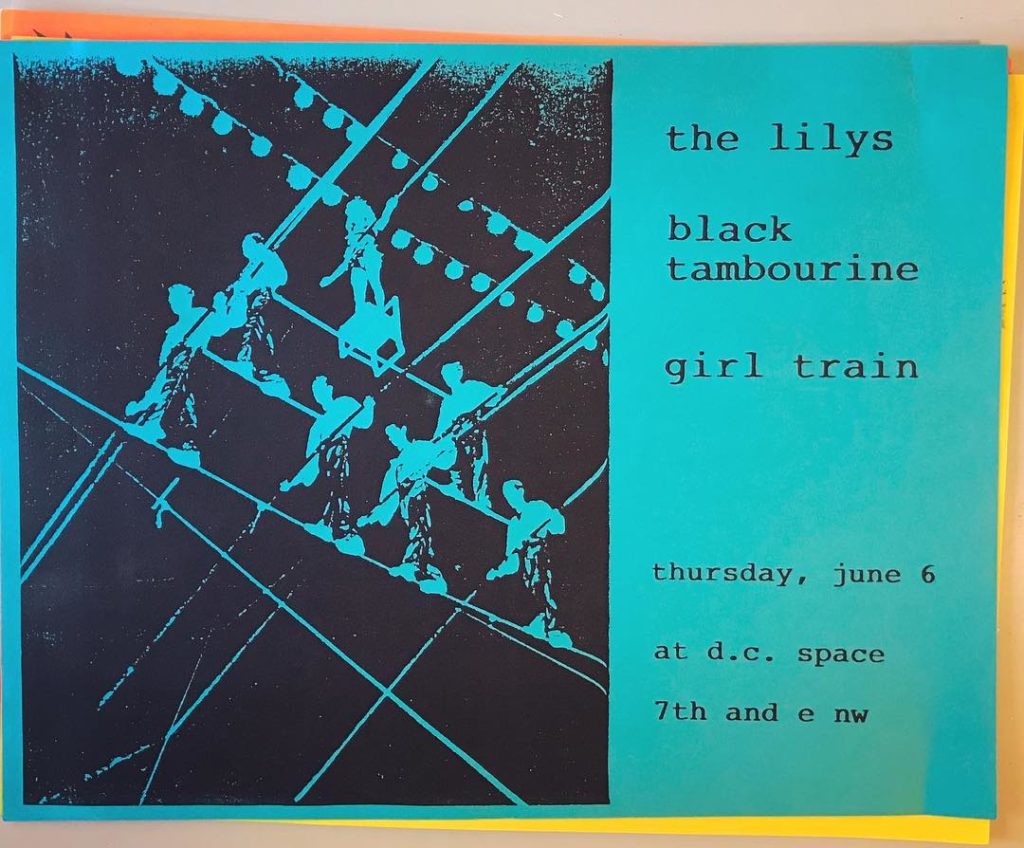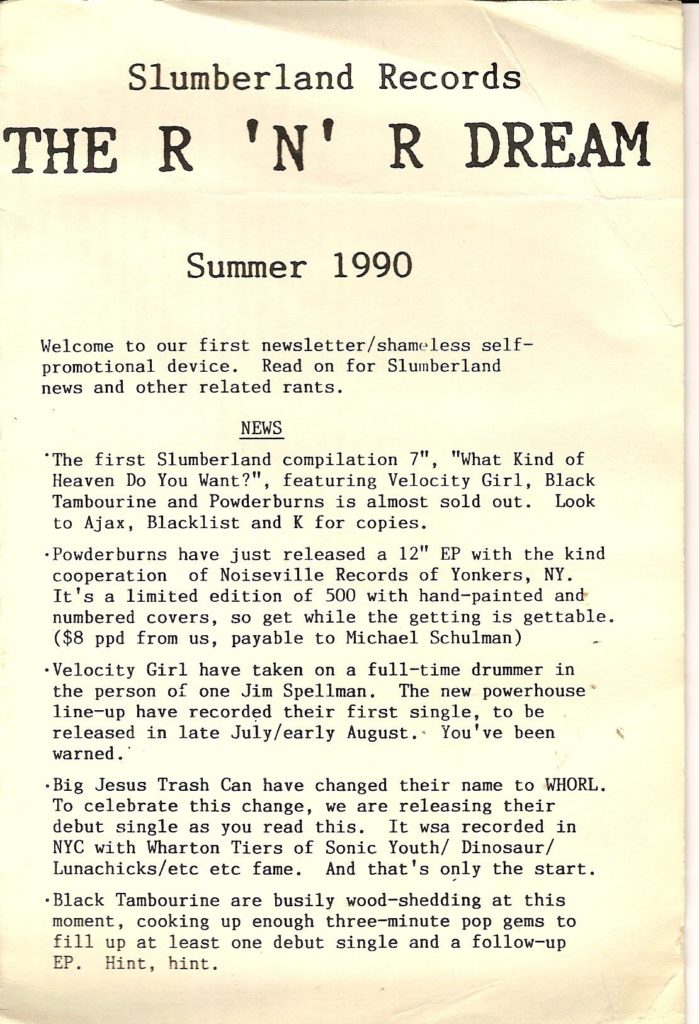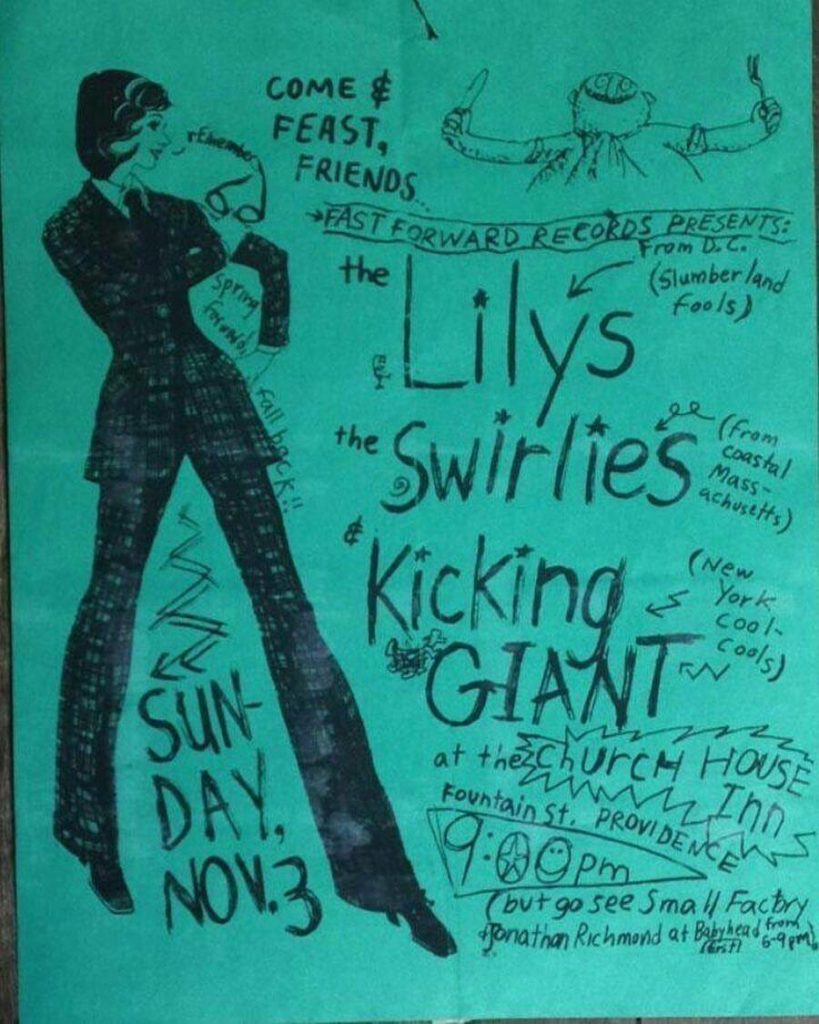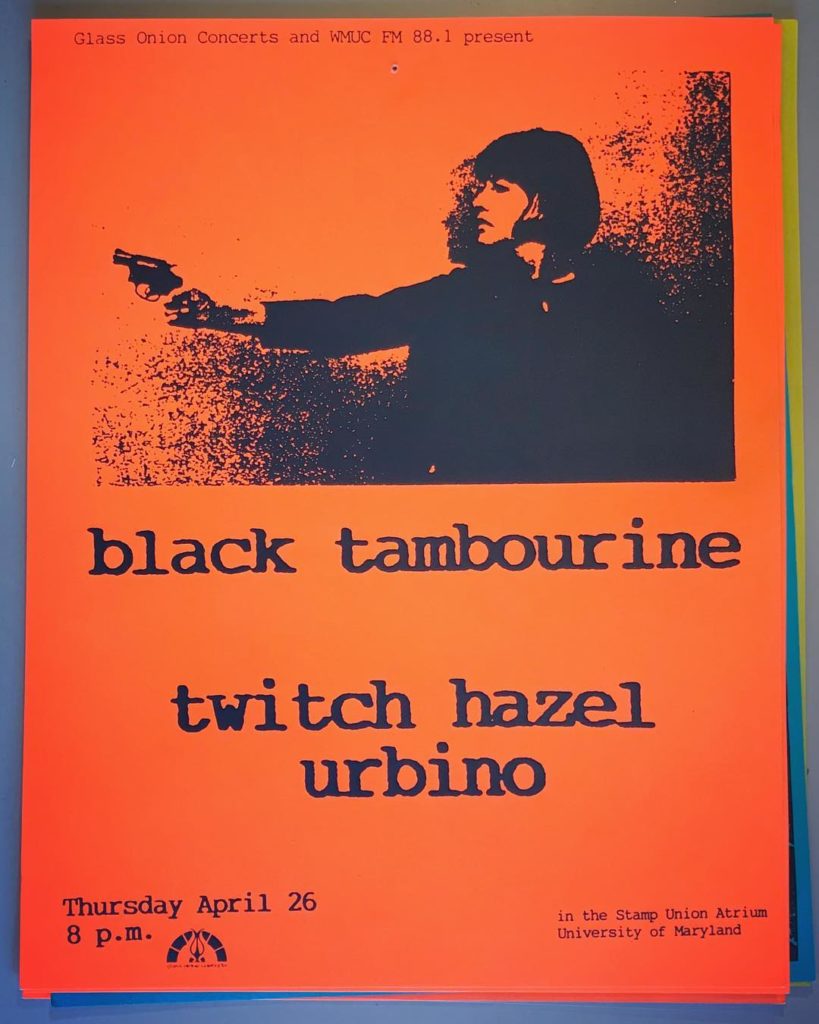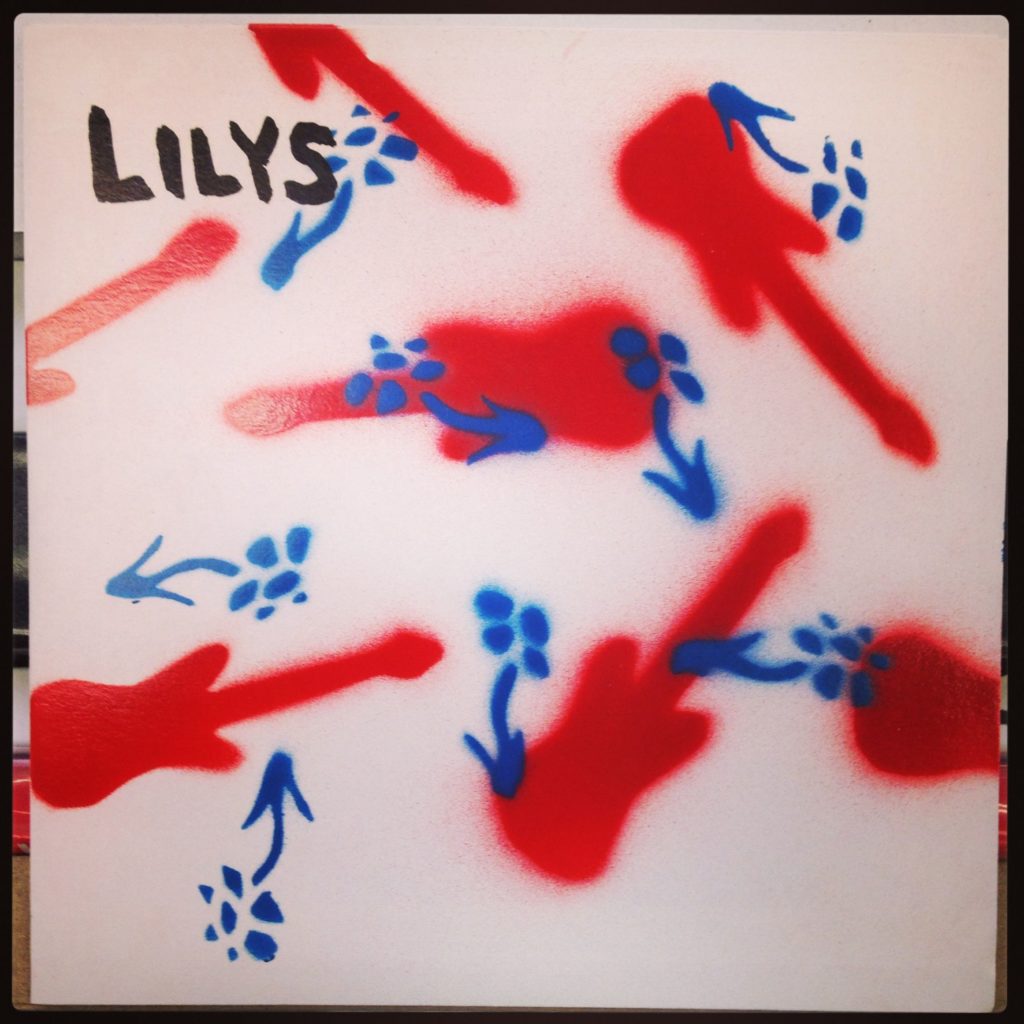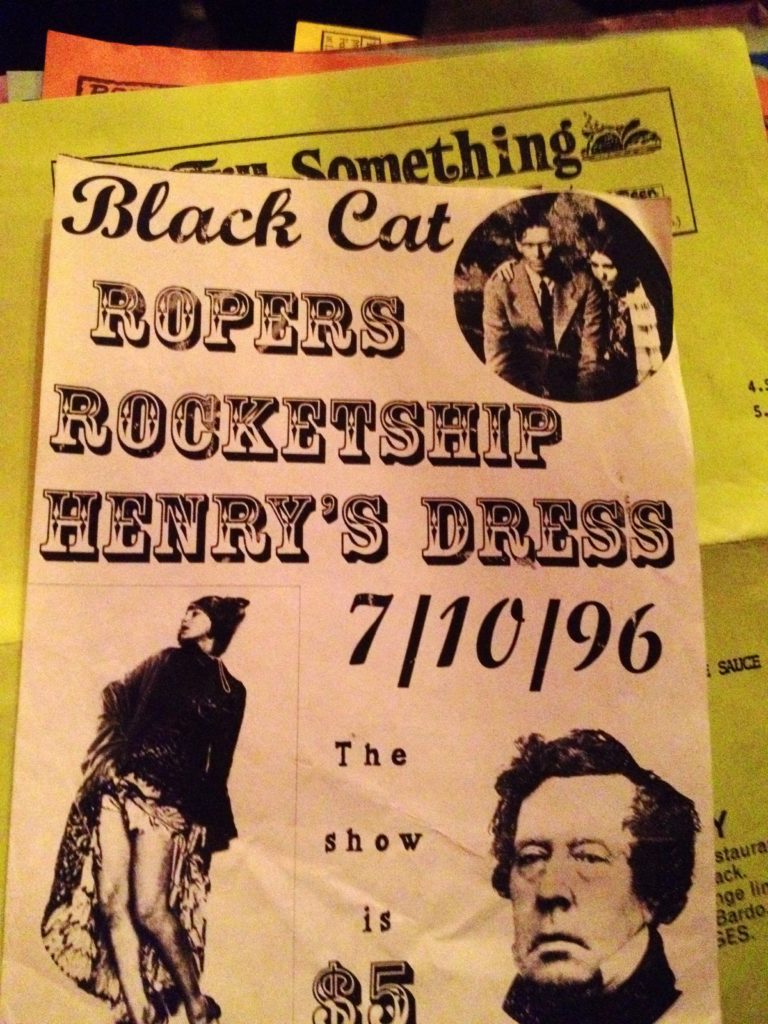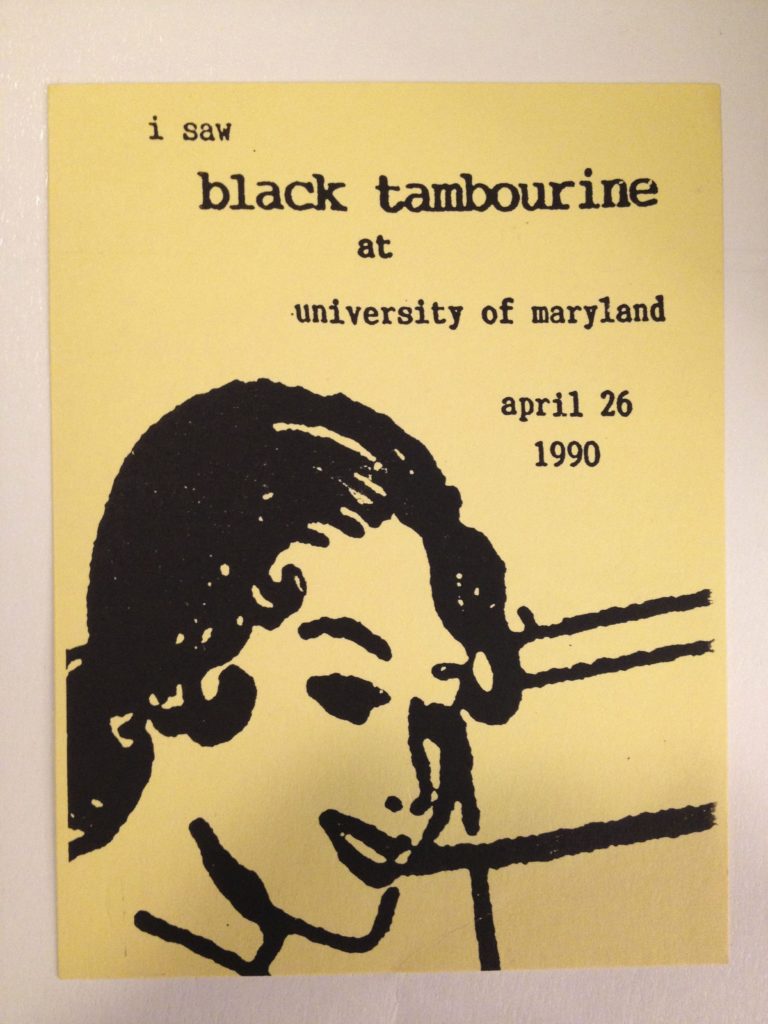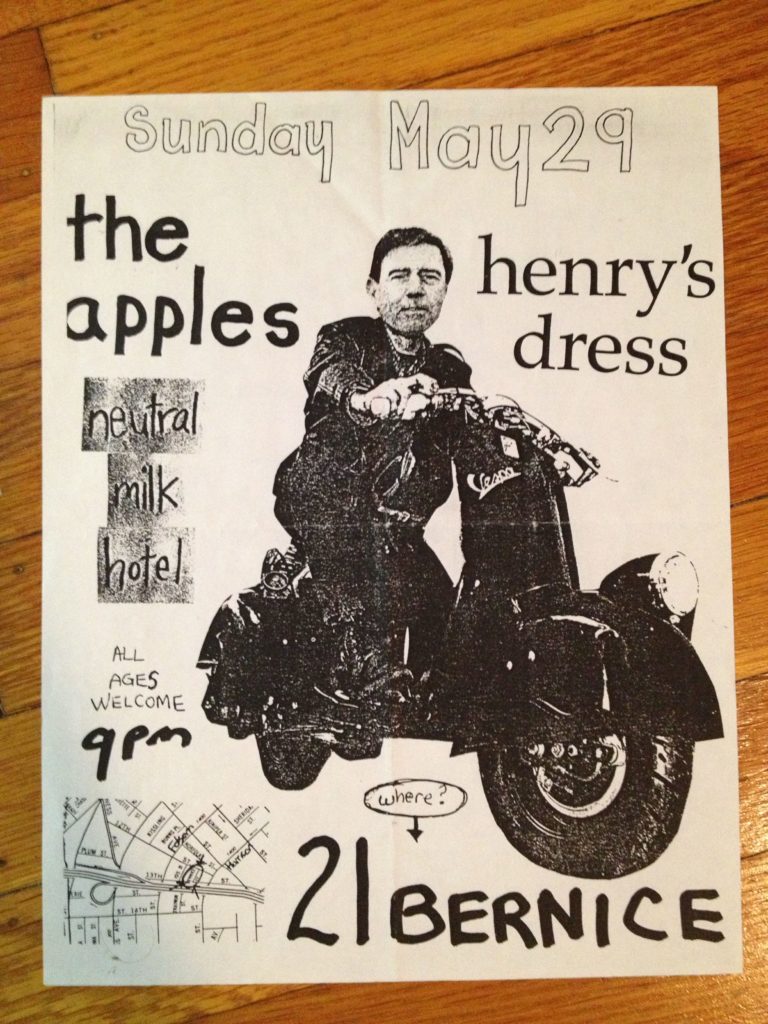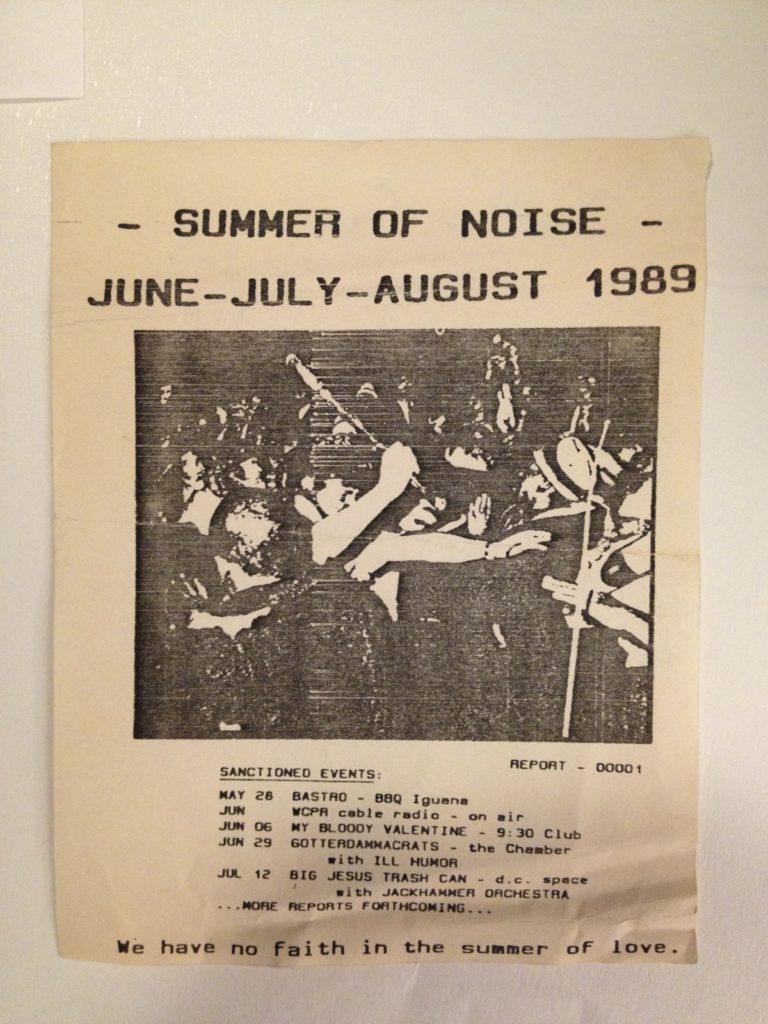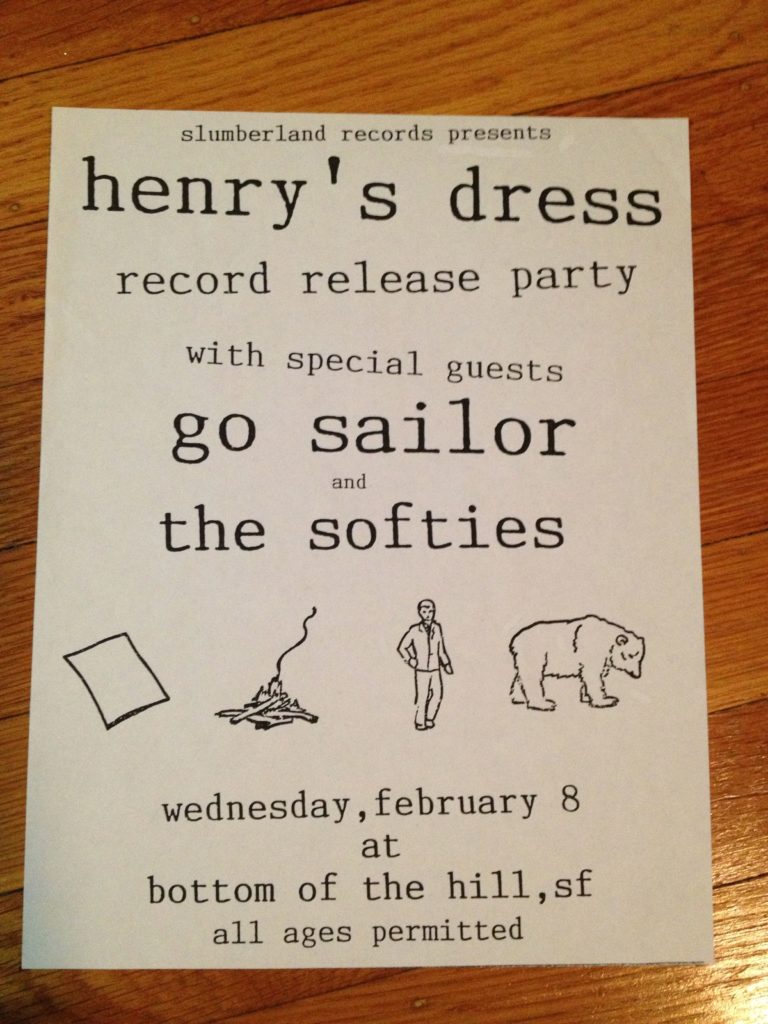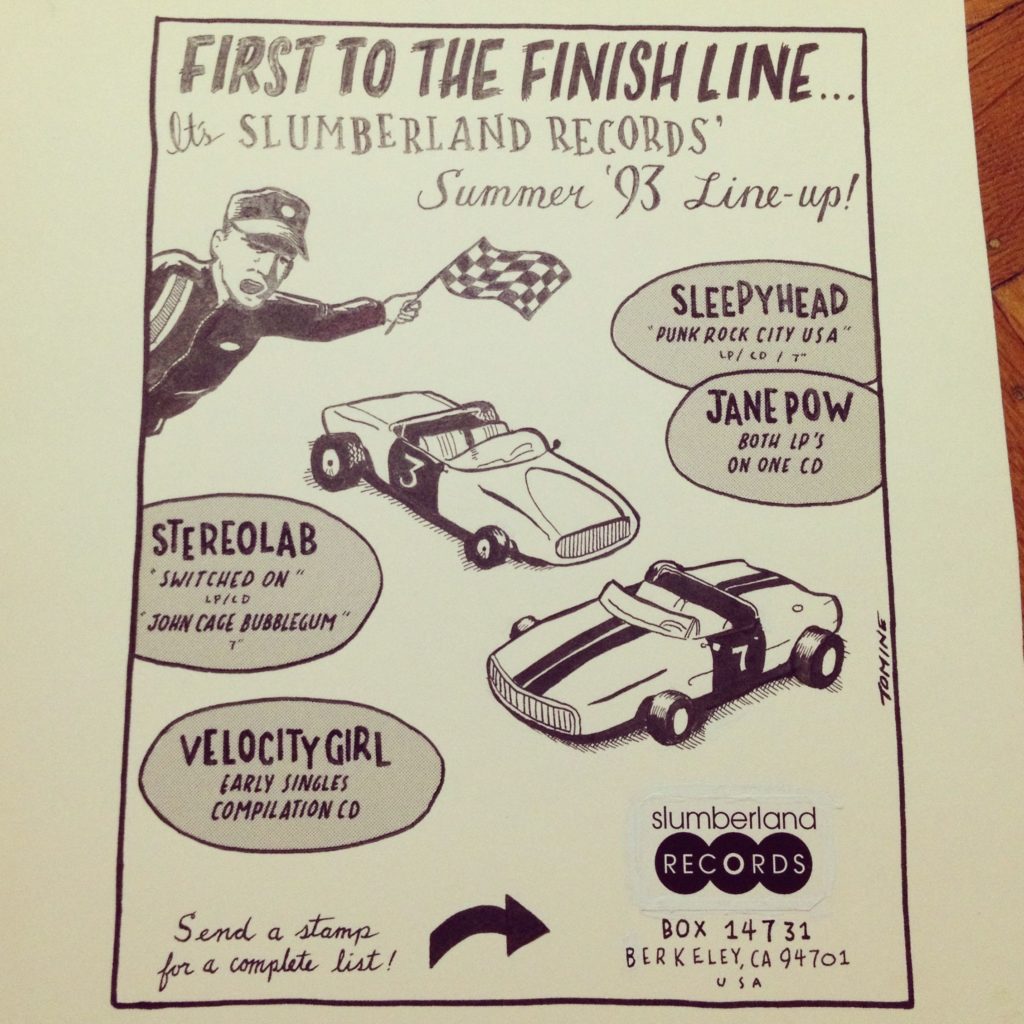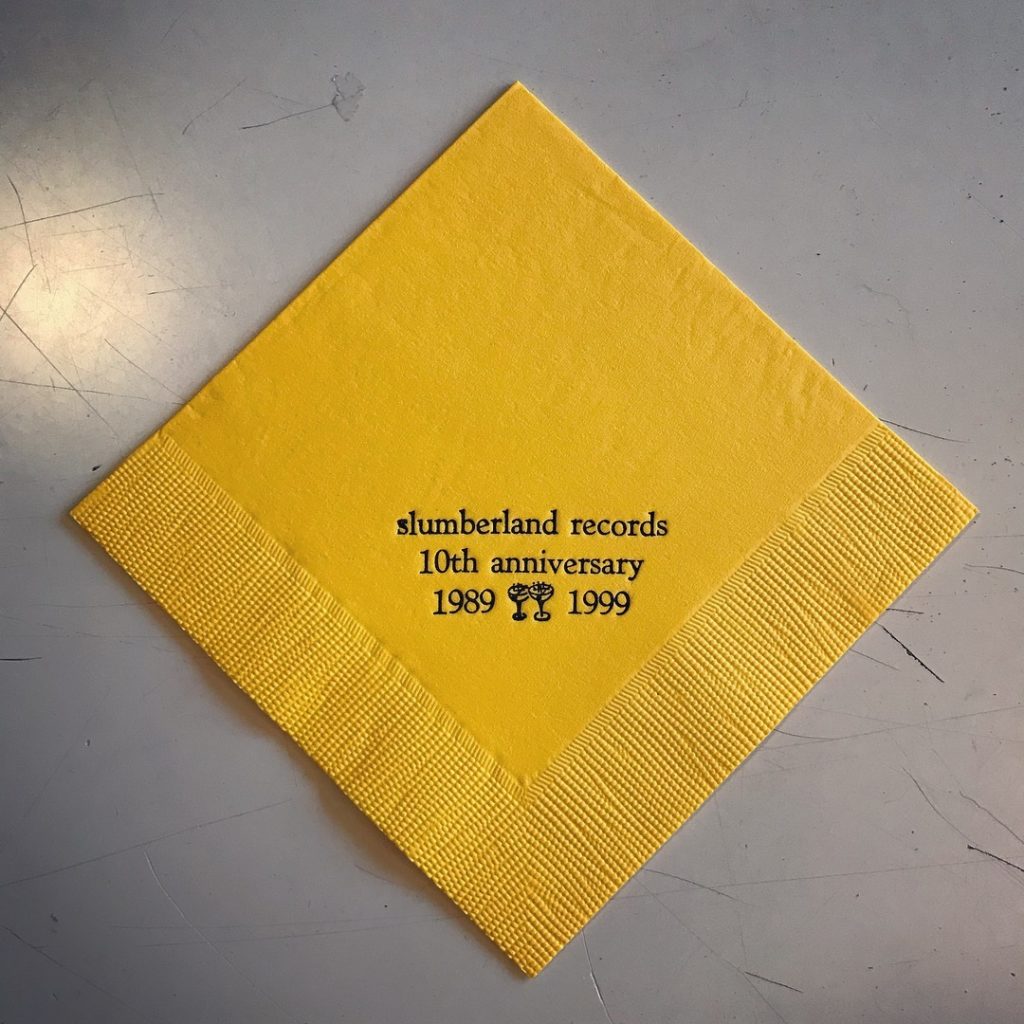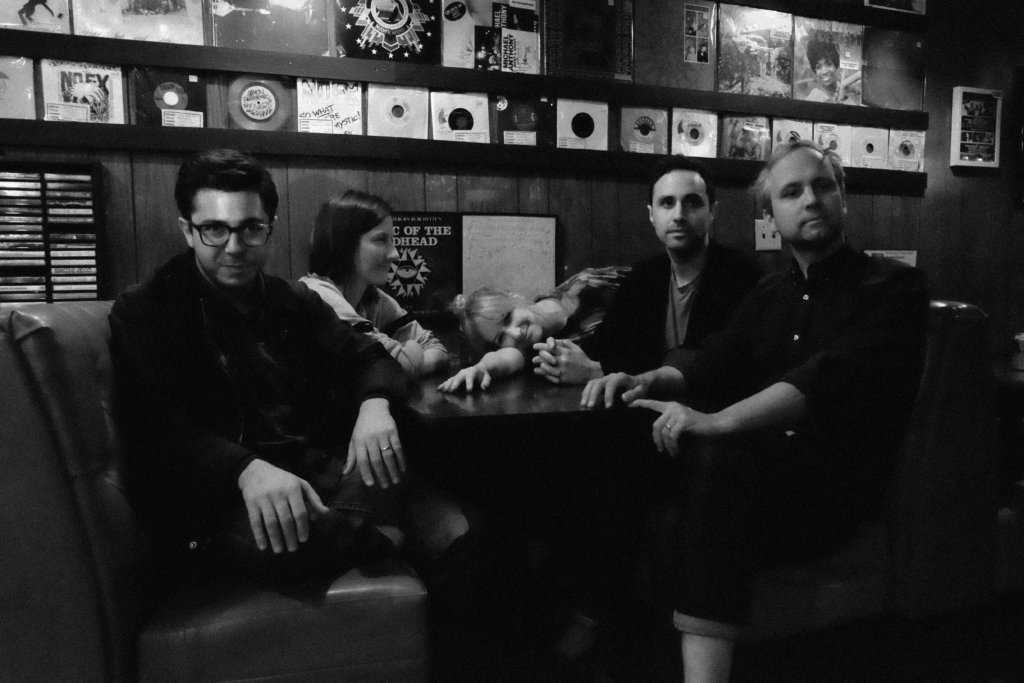
New Jersey natives Andrew Romano and Alex Naidus met in New York, but they became especially close friends after relocating to LA just six months apart in 2013. A few years later they found themselves playing together—almost accidentally—in Massage. This was an unexpected second act for Alex, who had previously played bass in the Pains of Being Pure at Heart. ¶ Much more low-key by design, Massage started with a single demo that Alex had penned but never shared in his Pains days. Soon there were more members—including bassist David Rager, original drummer Michael Felix and subsequent drummer Natalie de Almeida—and a strikingly melodic debut album in 2018’s Oh Boy. Quietly staking their claim as among the most ardent students of jangle pop in LA’s deeply fragmented music scene, Massage followed up that record with 2021’s Still Life, a dramatic leap ahead in songwriting chops and collective confidence. Showcasing the voices and songs of Andrew and Alex as well as those of keyboardist Gabi Ferrer, the album earned release through labels in Australia and Spain, beyond the band’s US home on Mt. St. Mtn. in Sacramento. ¶ The songs on Still Life feel instantly classic, hitting all the right touchstones while remaining very much their own creations. Following the opening one-two hit of “Half a Feeling” and “Made of Moods,” there’s the lasting sensation that we’re experiencing something special and well worth cherishing. Sung by Gabi with music written by Romano, “10 & 2” is another highlight, as is the Gabi-helmed “The Double.” The more recent Lane Lines EP has followed through on the second album’s dazzling promise, foregrounding a new studio version of the album track “In Gray & Blue” and showing subtle new sides of the band. ¶ We chatted with Andrew and Alex (both journalists), the cofounding songwriters of Massage in early 2022 about starting the band, fine-tuning their round-robin songwriting and the West Coast indie scene. intro and interview by Doug Wallen
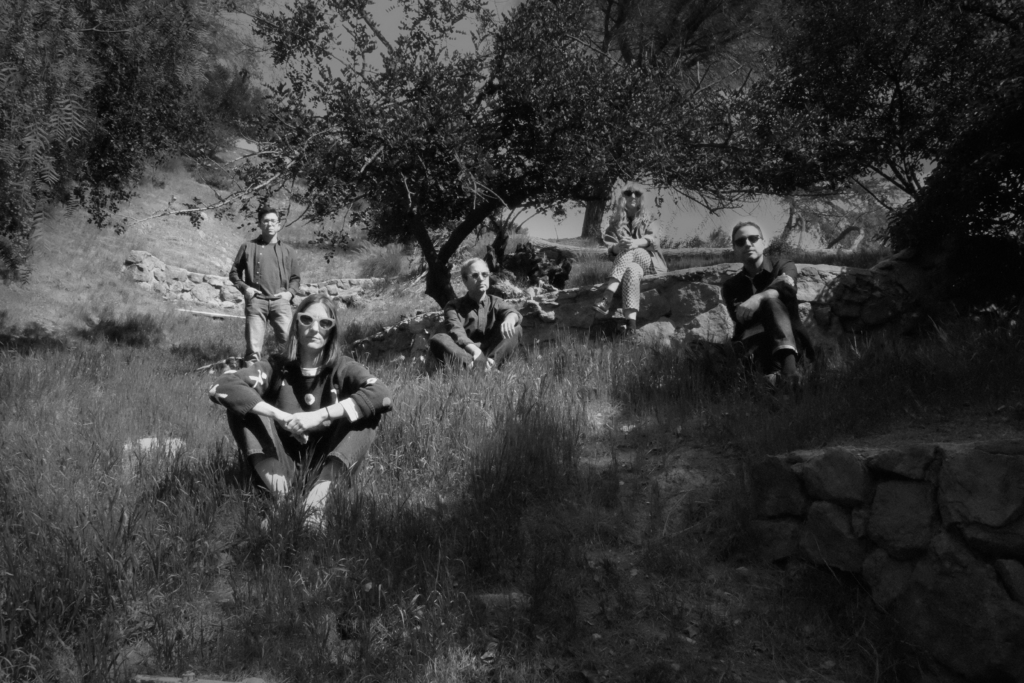
chickfactor: Alex, can you talk about following up Pains with Massage?
Alex: It was one of those life things where everything happens at once: I left the band, I was in a long relationship that ended, and I started a job at Buzzfeed. I started in New York, but there was a job opening in LA. “Leaving music behind” sounds so dramatic, but I needed to start my new life. I was kinda heartbroken and coming to a city I didn’t know that well. I didn’t have any plans to join a new band, and I purposefully didn’t do that for a while. ¶ The impetus to start again was Michael [Felix], the first drummer in Massage. He played on the first album and half of Still Life. He wanted to start playing drums again and said, “What if we just jam?” I told him I wasn’t really a jammer, and I just had a bass. But there was a rehearsal space where you could rent a guitar by the hour. ¶ It was purely just a way to hang out. I only knew how to play a few songs on guitar, [including] a song I wrote while I was in Pains. It was just a demo I made at home for fun. So we played that and it was a good time. I mentioned it to Andrew at a party and he said, “I want to do that.” And unbeknownst to me, Michael had the same thing happen with his friend David [Rager], who’s [now] the bassist for Massage. We rented the same rehearsal space and there were two guitars, bass, drums and my one song from five years ago. And it was like, “This is fun. We could keep doing this.”
Andrew: We both had the experience of writing songs for high school bands when we were younger. I didn’t think I would ever have a band that was a creative outlet again, but then we stumbled onto this thing. It was just friends doing music, with no great ambition beyond that.
CF: It sounds so accidental. Did you share a lot of touchstones right away, or how much did it sound like Massage early on?
Andrew: Well, that first song, “Kevin’s Coming Over,” is on the first album.
CF: So that was sort of the blueprint.
Andrew: Yeah. Alex and I were friends in New York but not really close, and then we became really good friends out here. There was a mutual friend of ours named Kevin who was doing night school. [The song] was just ramshackle, really rough indiepop. I think it’s about Kevin, but also an attempt to do that kind of thing. ¶ We like the same bands. I think the first phase of Massage was us writing towards the sound we wanted. The first record is kind of halfway there, and Still Life feels like we’ve gotten to that point, where the songs we write are really the kind of songs we like to listen to. But we do feel like we’re learning this as we go.
CF: Again, it seems very organic. I loved the first record but it didn’t get a lot of attention, but Still Life has had a higher profile and is on a few different labels…
Alex: I hope so. If it just finds its audience however it does, that’s cool. It blew my mind that a couple people not only didn’t know I used to be in Pains, but didn’t even know who Pains is. That’s rare, in fairness, but it’s neat. It’s just interesting how it flows.
CF: So neither of you had properly sang lead before. Did you have to build yourselves up to that?
Alex: There are definitely times where I have the singer syndrome that I feel like a lot of people have, especially people who make music like this. There’s an impulse to bury the vocals. But that’s what I sound like, and I’ll just do the best I can. The songs come first: to me the vocals are serving the songs.
Andrew: I’ve been on a bit of a New Order kick, and in New Order, when Ian Curtis died, they didn’t know which one of them was going to sing in this new band. It ended up being Bernard Sumner. He’s not a [natural] singer by any stretch of the imagination, but I wouldn’t want anyone else singing in that band. There’s something so perfect about the precision in a lot of their music and then the fragility and vulnerability of his voice. It makes that band work. So having a little imperfection can make it more appealing.
CF: And the keyboardist, Gabrielle, sings and writes songs as well.
Andrew: Gabi is my sister-in-law. It felt like this big gap [of time] before she joined, but it was only a few weeks after we started.
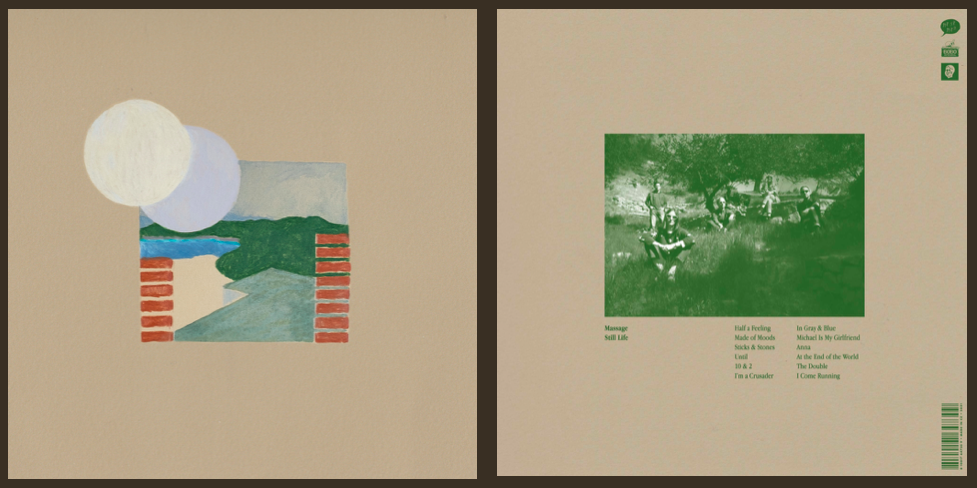
CF: I love how the new record flows between the three of you. Is it tricky to accommodate three singers and songwriters in one band?
Alex: Not at all. It just lays where it lays. Andrew and I have this thing too, where we write a lot of songs and share demos to inspire each other. So we end up with the same amount of songs, and Gabi will have hers too. There’s a symmetry that just happens naturally. Sometimes I think about that band Sloan, who have three main songwriters.
Andrew: Teenage Fanclub too.
Alex: Right. I always wondered how they do that, [but] it just comes out of us and we look at the [collective] pile. So far it’s been easier than you’d think.
Andrew: The Go-Betweens are a total model in that regard too. They worked together really well to [showcase] the best songs. I’ve done a couple songs now where I’ve written the music and the melody and then handed it over to Gabi to sing and write the lyrics. The first one was “Crying Out Loud” on the first record, and then “10 and 2” on this record. It’s amazing to see her come back with lyrics that are a million times more eloquent than anything I could have come up with—and suit her voice so well. ¶ And Gabi is a fantastic harmony singer, both in finding the right harmony and having this unusual tone and tenor to her voice that just melds really well. So the amount of harmonies in the band is a direct result of that.
Alex: She [also] does all the visual art for everything we’ve done, and she does music videos and animation.
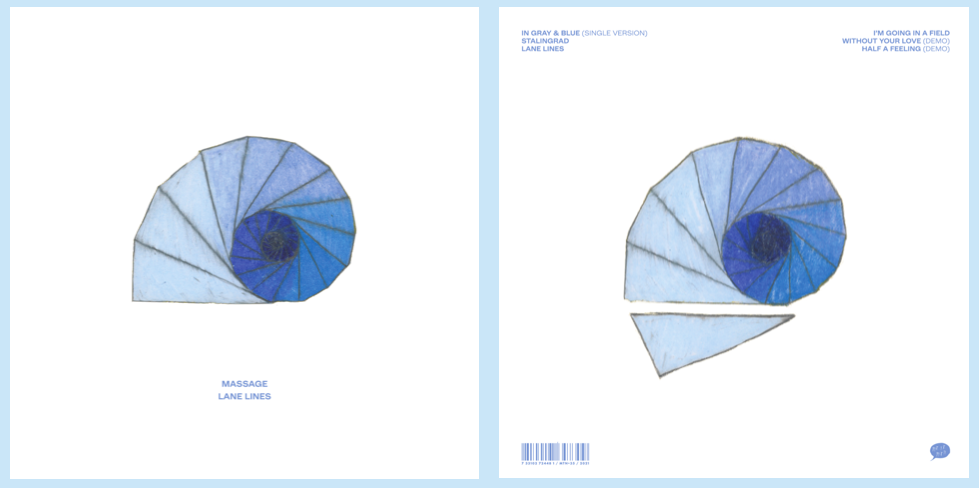
CF: What does it feel like to be an indie pop band in LA, especially when San Francisco indie pop is having such a moment right now? Have you found your niche?
Andrew: So you’ve noticed we’re not from San Francisco? (Laughter) We get lumped in and people say we’re from there. Because the name for the San Francisco scene now is “fog pop,” we were joking that we’re “smog pop.” We’ve got two smog pop bands in LA; we need a third one so you can write the trend piece. ¶ We love everything that’s going on in San Francisco, including bands we’ve played with a bunch of times—Cindy, Flowertown, Telephone Numbers, April Magazine—to the point where we’re envious about what they’ve got going on there. It seems like a really kind and friendly scene. We don’t have that in LA. One band we love and have played a few shows with is Semi Trucks, which used to be Venetian Blinds. They have a record [Vs. California] that just came out on Meritorio in Spain. ¶ Other than that, it’s been pretty [sparse]. But the past two years have been pretty weird [due to the pandemic]. We haven’t played a lot of shows, so there’s been a pause of any scene formation. But I’m not aware of many bands here doing the kind of thing we do.
Alex: It has felt ephemeral too, because the last show we played pre-pandemic was with the band Semi Trucks used to be, Venetian Blinds. But also this band Smokescreens, who are on Slumberland and had David Kilgour record their album. But I think that band isn’t a band anymore. Our friend David Stern, who plays as D.A. Stern, also has a record on Slumberland. ¶ This is so much of an enthusiastic friend exercise for us that our version of a scene is when we have band practice every week and go out for beers after. We’ll all go to shows together too, so we can kind of carry our own scene around in a little backpack with us. We are our own scene, and that’s satisfying enough for me.
Andrew: It’d be nice to foster that a bit more. Le Pain is another cool band who just formed here. The bass player used to be in Dummy, and they’ve put out a few singles. But LA’s a weird place: whatever the music scene is here, I don’t know what it is. It’s so vast, and then you get close to the Hollywood side and it’s got nothing to do with our lives. There’s a place on our side of town that we play at a lot called Permanent Records Roadhouse, and it’s nice to have a home base. ¶ And you can knock the internet all you want, but there’s a scene that can form virtually. There are all these bands we’ve discovered through Bobo Integral in Spain or Mt. St. Mtn., our label up north [in Sacramento]. And there’s a label in London called Prefect: they put out The Tubs, Mt. Misery and a French band called Eggs. You start finding these little pockets of like-minded bands throughout the world and exchange messages. In these pandemic times, that’s been a nice substitute for not having a tight-knit scene here in LA.
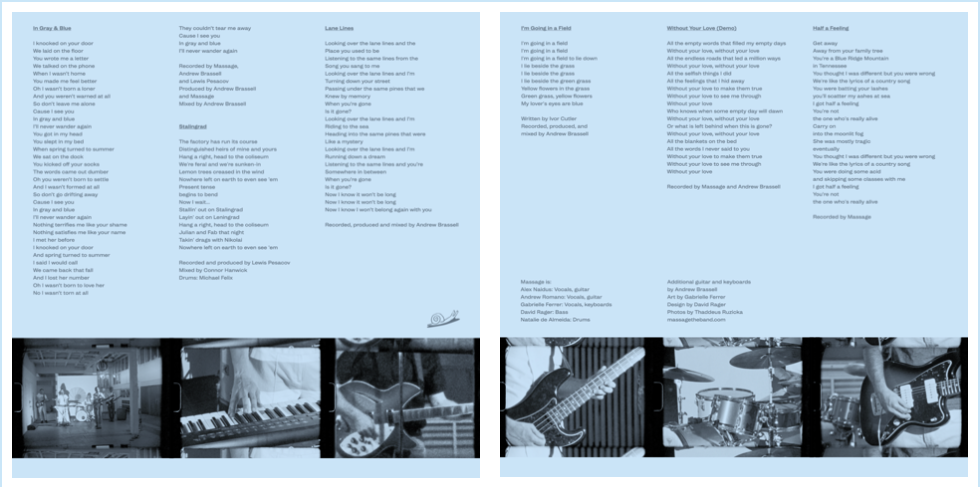
CF: I love how you guys don’t hide your influences from song to song, whether it’s The La’s or the Jesus and Mary Chain. But do you have moments where you worry that something sounds too much like its inspiration?
Alex: Only occasionally. It’s literally just the Jesus and Mary Chain [thing], especially coming from Pains. When I wrote “Half a Feeling,” it just came out completely done. It felt really good to do, but I thought it was probably too on the nose. I sent it around and Andrew was like, “This rules. We’ve got to use this.” I’ve dragged my feet to this day about that song: there’s a lot I love about it, but I knew [JAMC] would be the one [big] signifier. ¶ But it goes back to what I said earlier about the song being paramount. It’s helpful to have these references we all share. Just little things that can help shape it into what our ears want to hear. But the songs are still distinctly us.
Andrew: We’re not skilled enough to do the karaoke version. We might like how something works, but we can only ever do it in our own way. It ends up coming out sounding like us. Our limitations make it our own.
Alex: This is a half-baked metaphor, but if you have a state-of-the-art scanner, you put something in and it comes out perfectly. You’ve made a copy: it looks good, but you have the same thing as you had before. But if you think of a punk show flyer, it’s been xeroxed a hundred times and you’ve cut something extra out and taped it there. It’s like faded and black-and-white. That’s our version: the source material may be there, but we’re just doing our best to paste it together with the tools we have.
Andrew: I think we both really are students of how songs work. We’re constantly passing around songs we hear, trying to figure out what’s working and what’s not working. In that sense, we’re always listening to music and trying to unlock its mysteries. ¶ An example would be “In Grey and Blue,” a song there’s two versions of: one done at home for Still Life and one where we got to go do the single version with studio tools. And that came from listening to the Technique album by New Order and asking, “How do these bass lines work? What are they doing with acoustic guitars on these tracks that are otherwise really electronic-sounding? How do those tensions create this sound?” There’s not this great range in the melodies, but there’s something that Sumner does with the range of his syllables that makes it really catchy and memorable. ¶ We went a little overboard with trying to get the sound and the vibe to evoke that, but I don’t think it actually sounds like a New Order song. It just touches on some of the same mechanics. And we’re always thinking about it on that molecular level. That’s what’s interesting to me about writing music. CF
